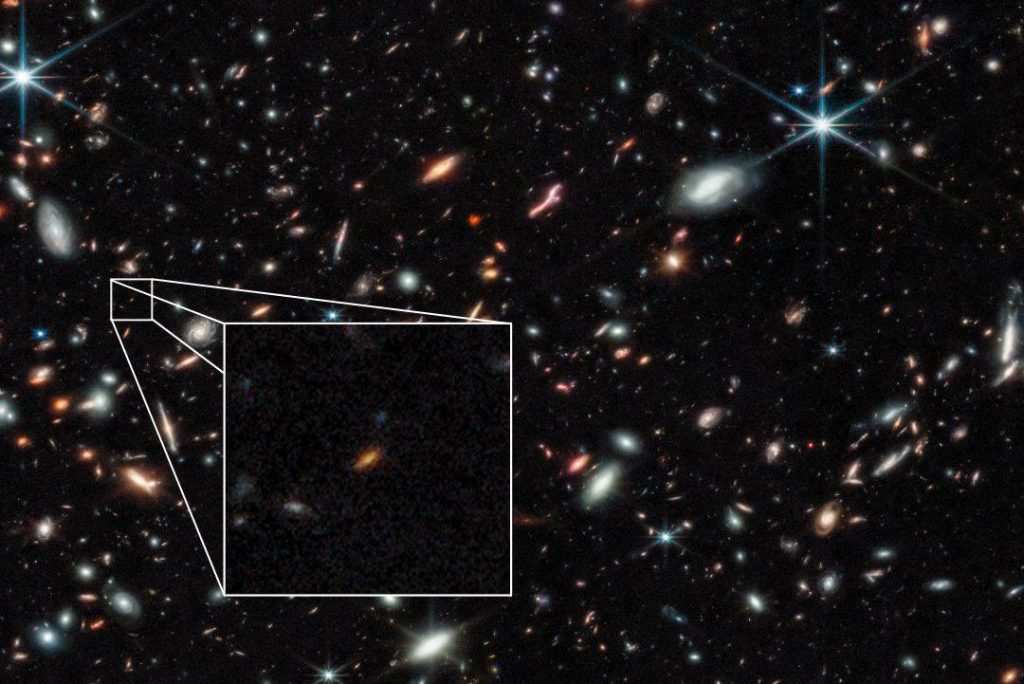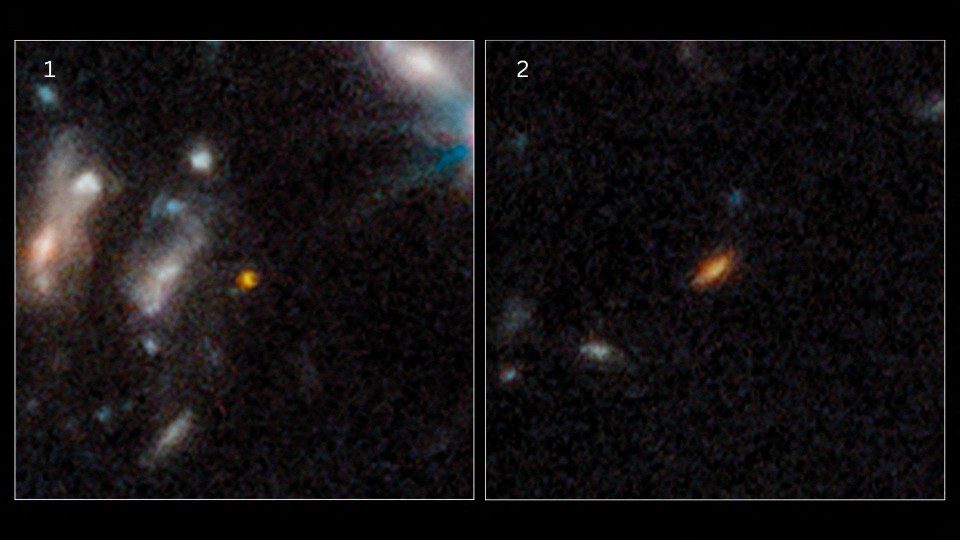© AFP
The James Webb Space Telescope made another interesting discovery. It was able to spot two new galaxies, which are believed to be the oldest and most distant galaxies ever discovered by man. This was reported by the US space program NASA.
source: The Guardian, The Washington Post, Space.com, NASA
Scientists have been amazed time and time again by the capabilities of the James Webb Telescope. It was launched in December 2021 as a replacement for the older Hubble Telescope and has already sent many amazing images back to Earth. But now the telescope may have made an interesting discovery.
The telescope has discovered two galaxies that may be the oldest and most distant galaxies humans have ever observed. NASA announced the discovery at a press conference on Thursday. One of the two galaxies may have formed about 350 million years after the Big Bang. This makes it the most distant galaxy ever discovered. The second system is said to have formed 400 million years after the Big Bang. The two will have to undergo further verification before they can actually claim the record.
Read also. NASA shares stunning images of the “Pillars of Creation” again
Hundreds of millions of years after the Big Bang may seem like a very long time after the creation of the universe, but in fact it is not at all. The age of the universe is 13.8 billion years. So we look back 98 percent of the time and see a galaxy like this,” astronomer Garth Illingworth, who helped come up with the idea for the James Webb telescope in the 1980s, said. Washington Post. He is convinced that we will find older galaxies.
“When and how the first galaxies formed remains one of the most intriguing questions,” the researchers wrote in a paper detailing their findings.
© AFP
(sgg)

“Thinker. Coffeeaholic. Award-winning gamer. Web trailblazer. Pop culture scholar. Beer guru. Food specialist.”









More Stories
Comet Tsuchinshan-Atlas is ready to shine this fall
Sonos isn’t bringing back its old app after all
Indiana Jones and the Great Circle is coming to PS5 in spring 2025